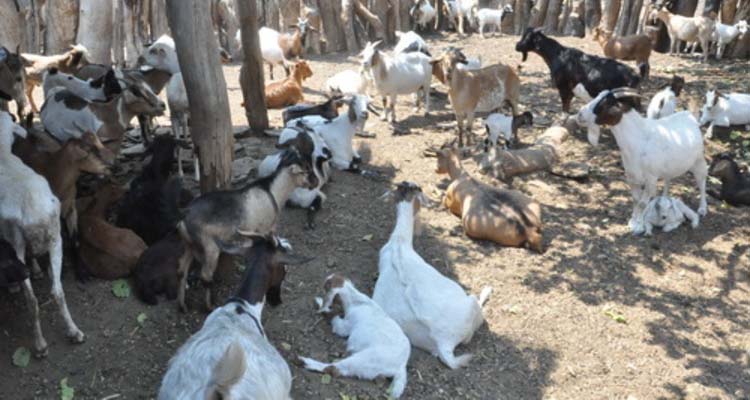
The ManicaPost

Blessing Rwizi Farming Correspondent
COMMERCIAL goat-rearing was never a business for many in Zimbabwe, but merely served as cultural tools and relish for those with the means. However, farmers in hot areas where crop farming dismally fails due to low rainfall patterns over the recent years have diversified into livestock farming with goats being one of the species giving them quick returns on their investment.
Since 2016, more than 50 farmers in Chimanimani West Wards 8 and 20 have scaled up goat production, with more than a thousand goats having produced so far. In these semi-arid areas, most farmers have opted for goats since they are more tolerant to drought and are increasingly being used to boost cash income and enhance food security as compared to cattle, thus serving as an important component in households’ livelihood strategies.
Goats are also resistant to droughts, utilise a wider diversity of plants and have higher reproductive rates that allow their population to recover and expand quickly. As browsers they also use different vegetation compared to cattle and this allow farmers to make more efficient use of the available natural resources.
The price for a goat ranges between $25 and $40 depending on weight. Goat meat has become an in-thing in butcheries and restaurants in the province. The farmers are now appealing to Government and Non-Governmental Organizations for more profitable markets.
One of the farmers Mr Never Matsika of Gudyanga, Chimanimani said goats play an important socio-cultural role in the society. He said goat breeders in Ward 20 were scouting for lucrative markets outside the province.
“I am eking a living from goat production. I started with six goats in 2016, which I fed with crop residue and now I have more than 50 goats. Small livestock have an advantage in that they require minimal investment,” said Mr Matsika.
“Goats also play a vital role in our livelihoods by contributing to food security and alleviating seasonal food variability and availability through milk and meat production, and indirectly through cash earned from the sale of their products,” he said.
Smallholder farmers in Zimbabwe own more than 90 percent of the national goat flock. Incidentally, close to half of them do not own cattle, and complement their livestock resources with goats, donkeys, chickens, and, in some cases a sizeable number of sheep.
Although goats can accomplish an important cash function, many farmers often do not realise these benefits, as there are no formal markets for profitable trading while access to marketing information is almost non-existent.



